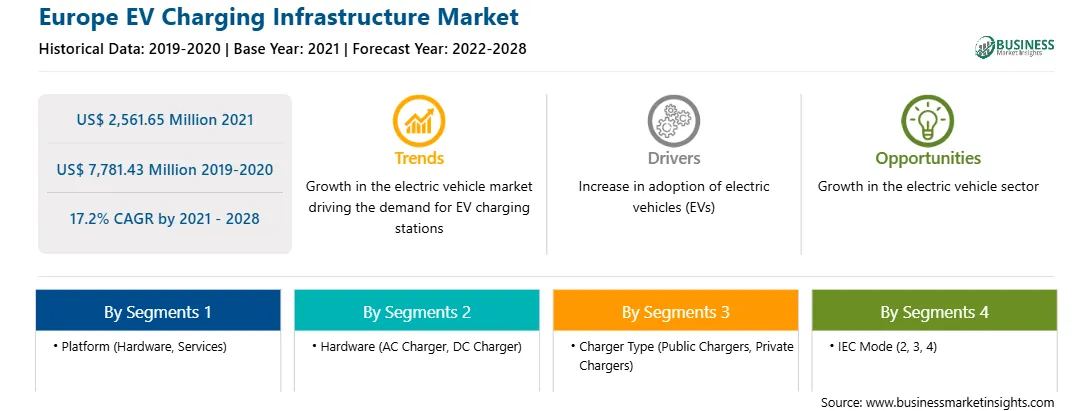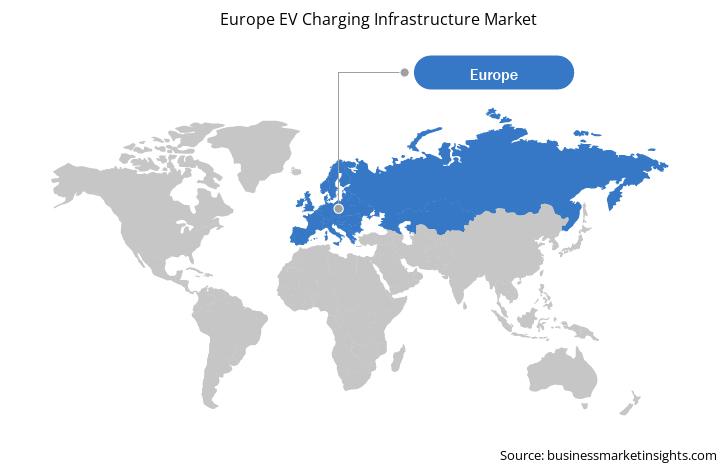The rising concern of the transportation sector's impact on the environment has led to an unprecedented requirement of decarbonizing transportation to meet climate goals and limit global warming, thereby increasing the adoption of low carbon technology in the transportation sector. The rising concerns for the adverse impact of transportation-related emissions and shift of consumer behavior toward zero-emission vehicles have resulted in a significant increase in the adoption of light-duty passenger vehicles across the region. Additionally, the ever-rising demand for electric vehicles is fueled through huge investments made by automotive giants in the research, development, and production of electric vehicles. Furthermore, with the fall in prices of EVs and the availability of a greater number of models, electric vehicle production is set for exponential growth in an increasing number of countries, subject to their overall economic growth and policy support from the government. Further, AC level 2 charge points constitute the largest portion of passenger-car charging stations, typically installed at homes, workplaces, and temporary destinations like stores or street parking. Additionally, the need for high-power commercial DC fast chargers to power the large batteries deployed in heavy-duty electric vehicles is further driving the EV charging infrastructure market. Therefore, the promising growth of the EV charging infrastructure market is being driven by the massive surge in the adoption of electric vehicles across the region, marked by a rise in demand and production.
Market Overview
When it comes to adopting electric mobility, the EU countries are among the frontrunners. The popularity of electric cars (EVs) has been steadily increasing in Europe since they first appeared on the market. About 1.4 million battery-electric cars (BEVs) and plug-in hybrid electric vehicles (PHEVs) were registered in 2020 in this region, a 137% increase over 2019. Aside from growing electric vehicle sales, the EV infrastructure is rapidly evolving. Between 2010 and 2020, Europe saw a fast expansion in available infrastructure for charging electric vehicles. However, from two in 2010 to eleven in 2020, the number of electric vehicles per charging station has increased to some extent. To put it another way, 11 automobiles must share a single publicly accessible charging station. More charging stations must be built across Europe for electric vehicles to retain their upward trend and success, culminating in market expansion in the continent. According to the ACEA 2021 edition of the yearly 'Making the Transition to Zero-Emission Mobility' study, EV infrastructure has been quite uneven across Europe. There are approximately 224,237 electric vehicle charging stations in this region. Three countries, i.e., The Netherlands, Germany, and France, account for 70% of all EV charging points in Europe. The Netherlands has 66,665 electric vehicle charging stations, France has 45,751, and Germany has 44,538. These countries account for only 23% of the overall surface area of this region. Strangely, ten countries have fewer than one electric vehicle charging facility every 100 kilometers of road. There should be an abundance of electric vehicle charging stations in an ideal world in at least all cities and along all European motorways. The station rollout should be more evenly distributed, as there are now barriers to electric car travel across this region. As a result, the region's market will be propelled by the growing requirement to stabilize the distribution of electric vehicle charging stations.
Strategic insights for the Europe EV Charging Infrastructure provides data-driven analysis of the industry landscape, including current trends, key players, and regional nuances. These insights offer actionable recommendations, enabling readers to differentiate themselves from competitors by identifying untapped segments or developing unique value propositions. Leveraging data analytics, these insights help industry players anticipate the market shifts, whether investors, manufacturers, or other stakeholders. A future-oriented perspective is essential, helping stakeholders anticipate market shifts and position themselves for long-term success in this dynamic region. Ultimately, effective strategic insights empower readers to make informed decisions that drive profitability and achieve their business objectives within the market.

| Report Attribute | Details |
|---|---|
| Market size in 2021 | US$ 2,561.65 Million |
| Market Size by 2028 | US$ 7,781.43 Million |
| Global CAGR (2021 - 2028) | 17.2% |
| Historical Data | 2019-2020 |
| Forecast period | 2022-2028 |
| Segments Covered |
By Platform
|
| Regions and Countries Covered | Europe
|
| Market leaders and key company profiles |
The geographic scope of the Europe EV Charging Infrastructure refers to the specific areas in which a business operates and competes. Understanding local distinctions, such as diverse consumer preferences (e.g., demand for specific plug types or battery backup durations), varying economic conditions, and regulatory environments, is crucial for tailoring strategies to specific markets. Businesses can expand their reach by identifying underserved areas or adapting their offerings to meet local demands. A clear market focus allows for more effective resource allocation, targeted marketing campaigns, and better positioning against local competitors, ultimately driving growth in those targeted areas.

Europe EV Charging Infrastructure Market Segmentation
The Europe EV charging infrastructure market is segmented based on operator type, platform, hardware, charger type, IEC mode, and country.
ABB Ltd.; Blink Charging Co.; BOSCH Auto Parts; Delta Electronics, Inc.; Driivz Ltd.; Eaton; EVBox; Leviton Manufacturing Co., Inc.; Siemens AG; Tesla, Inc.; Tritium; Wallbox Chargers, S.L.; and Webasto Group are the leading companies operating in the Europe EV charging infrastructure market.
The Europe EV Charging Infrastructure Market is valued at US$ 2,561.65 Million in 2021, it is projected to reach US$ 7,781.43 Million by 2028.
As per our report Europe EV Charging Infrastructure Market, the market size is valued at US$ 2,561.65 Million in 2021, projecting it to reach US$ 7,781.43 Million by 2028. This translates to a CAGR of approximately 17.2% during the forecast period.
The Europe EV Charging Infrastructure Market report typically cover these key segments-
The historic period, base year, and forecast period can vary slightly depending on the specific market research report. However, for the Europe EV Charging Infrastructure Market report:
The Europe EV Charging Infrastructure Market is populated by several key players, each contributing to its growth and innovation. Some of the major players include:
The Europe EV Charging Infrastructure Market report is valuable for diverse stakeholders, including:
Essentially, anyone involved in or considering involvement in the Europe EV Charging Infrastructure Market value chain can benefit from the information contained in a comprehensive market report.